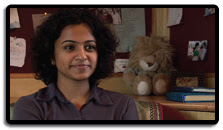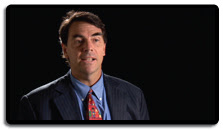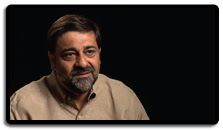Two Million Minutes
THE DOCUMENTARY
Regardless of nationality, as soon as a student completes the 8th grade, the clock starts ticking. From that very moment the child has approximately…Two Million Minutes until high school graduation…Two Million Minutes to build their intellectual foundation…Two Million Minutes to prepare for college and ultimately career…Two Million Minutes to go from a teenager to an adult?
How a student spends their Two Million Minutes - in class, at home studying, playing sports, working, sleeping, socializing or just goofing off -- will effect their economic prospects for the rest of their lives.
How do most American high school students spend this time? What about students in the rest of the world? How do family, friends and society influence a student's choices for time allocation? What implications do their choices have on their future and on a country's economic future?
This film takes a deeper look at how the three superpowers of the 21st Century ?China, India and the United States ?are preparing their students for the future. As we follow two students - a boy and a girl - from each of these countries, we compose a global snapshot of education, from the viewpoint of kids preparing for their future.
Our goal is to tell the broader story of the universal importance of education today, and address what many are calling a crisis for U.S. schools regarding chronically low scores in math and science indicators.
In many ways the six kids simultaneously fit and break national stereotypes.
Take Rohit in Bangalore. He is under intense pressure from his folks to get into a top engineering university but blows off steam singing with his "boy band" and dreams of sending demos out to record companies. In Shanghai we meet math whiz Xiaoyuan, who, while awaiting word from Yale to see if she gained early acceptance, tries out as a violinist for the top music conservatory in Shanghai.
In Indianapolis we go to school with Neil. The senior class president and former star quarterback who gave up football to focus more on his studies. He has cruised through school, but now, with a full academic scholarship to Purdue University, wonders if he is up to the college challenge. The other students profiled in the documentary - Ruizhang, Brittany and Apoorva - face many of these universal adolescent pressures as well.
To put these narratives in context we have assembled an array of interviews with specialists like former U.S. Secretary of Labor, Robert Reich, Congressman Bart Gordon, chair of the House Committee on Science, Harvard economist Richard Freeman as well as top Indian CEOs, and leading scientists in America.
Statistics for American high school students give rise to concern for our student's education in math and science. Less than 40 percent of U.S. students take a science course more rigorous than general biology, and a mere 18 percent take advanced classes in physics, chemistry or biology. Only 45 percent of U.S. students take math coursework beyond two years of algebra and one year of geometry. And 50 percent of all college freshmen require remedial coursework.
Meanwhile, both India and China have made dramatic leaps in educating their middle classes - each comparable in size to the entire U.S. population. Compared to the U.S., China now produces eight times more scientists and engineers, while India puts out up to three times as many as the U.S. Additionally, given the affordability of their wages, China and India are now preferred destinations for increasing numbers of multinational high-tech corporations.
Just as the Soviets' launch of a tiny satellite ignited a space race and impelled America to improve its science education, many experts feel the United States has reached its next "Sputnik moment." The goal of this film is to help answer the question: Are we doing enough with the time we have to ensure the best future for all?
THE FILMMAKERS
Executive Producer

The Two Million Minutes storyline was conceived by Robert A. Compton and he also has served as Executive Producer of the documentary. Compton has had a distinguished business career as a venture capitalist, as former President of a NYSE company, as the entrepreneur founder of four companies and as an angel investor in more than a dozen businesses. Compton has traveled the world extensively. His trips to India in 2005 and 2006 inspired him to author a blog , publish a book - Blogging Through India - and to create the documentary Two Million Minutes.
Director and Editor
Chad Heeter joined Compton on this film project in the spring of 2006, as he was completing his Master's degree in Journalism and Latin American Studies at U.C. Berkeley. Heeter has been the Senior Producer throughout the film making process.
Producer
Adam Raney joined Heeter as a Producer in January 2007. He also holds a Master's degree in Journalism and Latin American Studies from U.C. Berkeley. The two have worked as reporters and filmmakers in Latin America, Asia, Europe and the United States. Their last project together was a documentary on Brazil's landless movement for Frontline/World on PBS.org - http://www.pbs.org/frontlineworld/rough/2005/12/brazil_cutting.html
Both Heeter and Raney have been interested in education since spending two years teaching as members of Teach for America. Heeter was a high school science teacher in Georgia, and Raney taught junior high science, English and social studies in New York City. Heeter also went on to teach in Japan.
Characters

THE STUDENTS
2MM shows the priorities and pressures of six students ?two each from the United States, India and China. Their personal stories show how these three countries educate their youth and lay the foundations for future economic growth.

Brittany Brechbuhl, 17, Carmel, Indiana.
Brittany is in the top three percent of her graduating class and dreams of becoming a doctor. She wants to balance a professional life with a family once she finishes her studies.

Neil Ahrendt, 18, Carmel, Indiana.
Neil is senior class president and a National Merit semifinalist. He is unsure of what he wants to be when he grows up, but is confident he will find success.

Apoorva Uppala, 17, Bangalore, India.
Apoorva aims to become an engineer which she says is the safest profession in India. She spends her Saturdays in tutoring sessions with many of her friends as she prepares for admission exams.

Rohit Sridharan, 17, Bangalore, India.
Rohit wants to gain acceptance to one of the prestigious Indian Institutes of Technology, the top engineering schools in the country. He spends nearly all his time preparing for the IIT entrance exam.

Hu Xiaoyuan, 17, Shanghai, China.
Xiaoyuan is one of her school’s most well-rounded students. She plays violin and hopes to study biology at a top university. She has applied for early admission at Yale University.

Jin Ruizhang, 17, Shanghai, China.
Ruizhang is the top math student at his school and competes in international math tournaments. He dreams of studying in the advanced math program at Peking University when he graduates from high school.
THE EXPERTS
2MM covers a wide range of viewpoints from experts on the state of global secondary education and its impact on international competitiveness.

Robert Reich
Former U.S. Secretary of Labor, Professor at U.C. Berkeley. Reich regularly comments on education and economics for the nationally broadcast daily radio program, Marketplace. He speaks often of the need to prepare students for the global knowledge economy.
http://www.robertreich.org/reich/biography.asp

Shirley Ann Jackson
Physicist, President of Rensselaer Polytechnic Institute, former Chairman of the U.S. Nuclear Regulatory Commission. Jackson received the National Science Board’s prestigious Vannevar Bush Award in 2007, for a lifetime of achievements in scientific research and education. Jackson has called the math-science gap in the U.S. “The Quiet Crisis.?/p>
http://www.rpi.edu/president/index.html

Bart Gordon, (D-TN)
Chairman of the U.S. House Committee on Science and Technology. Gordon, a 12-term congressman introduced legislation to implement key recommendations for scientific research and education from the National Academy of Sciences report, Rising Above the Gathering Storm.
http://science.house.gov/about/gordon_bio.htm

Vivek Paul
former Vice Chairman and CEO of WiPro technologies of India. Paul came to the U.S. from India as an M.B.A. student in 1980. He was one of Thomas L. Friedman’s main guides as Friedman framed the thesis for The World is Flat.

Tim Draper
Founder and Managing Director of Draper Fisher Jurvetson venture capital firm. Draper has served on the California State Board of Education and chairs BizWorld, a 501c3 organization that teaches entrepreneurship and business to children.
http://www.dfj.com/team/tim_bio.shtml

Vivien Stewart
Chinese Education Specialist, the Asia Society. Stewart leads educational exchanges to share expertise between American and Asian educators on reforms to meet the demands of the global economy. She was the primary author of, Math and Science Education In a Global Age: What the U.S. Can Learn from China.
http://www.asiasociety.org/about/

Richard Freeman
Economist, Harvard University, and Director of the Labor Studies Program at the National Bureau of Economic Research. Freeman, the author or editor of over 35 books, writes regularly on a wide range of issues including the science and engineering job market, Chinese labor markets, and youth labor market problems.
http://www.nber.org/~freeman/

Vivek Wadhwa
Executive-in-Residence, Duke University, Master of Engineering Management program. Prior to coming to Duke, Wadhwa launched two software companies. His reports ?Where The Engineers Are, and Intellectual Property, the Immigration Backlog, and a Reverse Brain-Drain: America's New Immigrant Entrepreneurs ?focus on the impact of globalization on the engineering profession.
http://memp.pratt.duke.edu/people/staff.php
